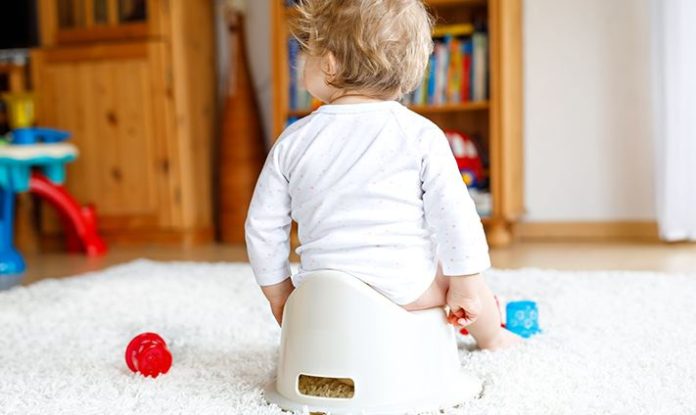Is your child about 30 months old? Are you tired of carrying the huge diaper bag whenever you step out of the house and your child carries the extremely uncomfortable wet and smelly diaper until you have the chance to change him?
Well, then its time to commence your potty training classes! Parents must realize that potty training is all about adaptation for the infant. He is being introduced to a new system altogether because until now he could relieve himself anywhere without disrupting his activities.
Potty training involves control on part of the child, something he was unaware of all this while. And in order to inculcate this habit in him, you require patience and a relaxed environment to promote learning. What you require is a systematic step-by-step transition method for the child that is in tune with his natural tendencies.
Some useful potty training tips:
1. Know when to start training.
There is no particular age at which the child is ready to learn to use the potty. Most children develop the necessary skills at around the age of 18 to 24 months, though some children are not ready until they are nearly three.
2. Let your child take his time.
Do not force or pressurize him to use the potty. Allow him to adapt to this new process. The level of adaptation varies from child to child and some children may take weeks and other months.
3. How to start?
Once you are sure your child is ready for training the first step would be to practice making him sit on the potty fully clothed. The seat might feel cold so initially, it will be comfortable for the child if he sits with his dress on.
While he sits you can read out to him or talk to him. If he resists do not force him but try to continue the practice once every week. This will help him acclimatize to his potty seat and your child will be ready to practice using the seat for its intended purpose.
4. Let your child be comfortable with his potty chair.
Make him realize that it’s own. He should never be scared of going near his little potty-chair. To get him to be comfortable keep his toys next to it or place his teddy there. If he wants to decorate it or write his name on it, let him.
5. Always praise your child’s efforts.
It is natural for a child to resist and you have to break this resistance by praising him or rewarding him whether he succeeds in his efforts or not. If he responds positively, compliment him, and don’t leave any opportunity to encourage him.
6. Expect accidents.
If there are accidents (and be sure to face many) you have to maintain your calm. You must communicate to your child that it is natural for him to make mistakes. Never shout or laugh aloud at him and do not punish him no matter how frustrated you might be.
For if you punish him this, in turn, may embarrass the infant and retard the learning process. He might refuse to use the potty thinking that he has done something shameful. You have to give time to the baby to sense his urge to defecate and then respond accordingly.
7. Holding stool could cause constipation.
You shall have to soften the stool if it becomes hard using fiber-rich foods like cereals and whole-grain bread. The infant needs to be fed throughout the day and he should have enough fluids as well. This will avoid constipation and keep the bowels clear.
8. Right clothes.
Make sure that your child’s clothes are easy to pull on and off. During the training process maximizing the infants, comfort is necessary, so you must avoid belts and pull-ups. This is important as the child will feel in control and have access to the toilet whenever he wants.
Have loads of patience and avoid power struggles with your toddler. All the best!

